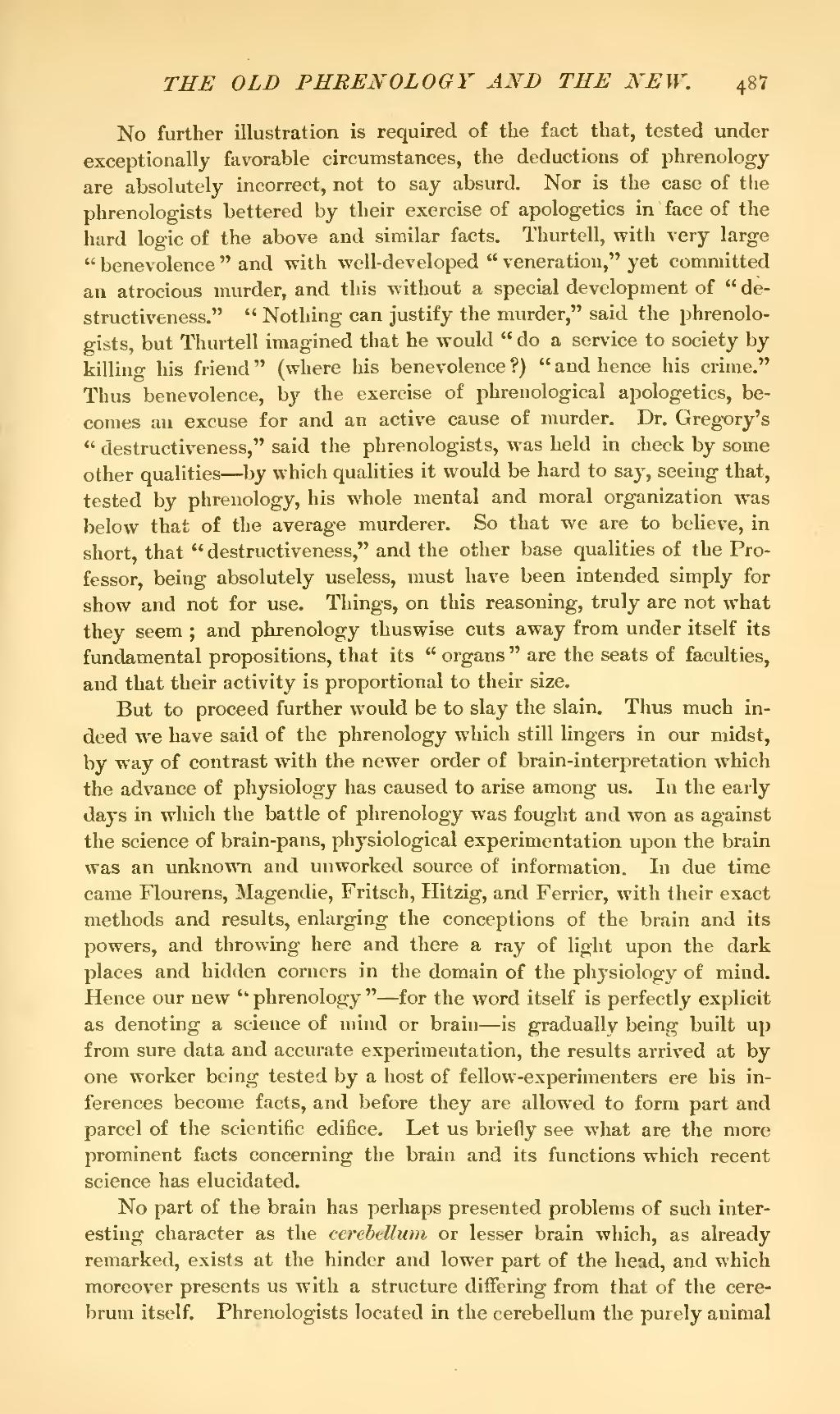No further illustration is required of the fact that, tested under exceptionally favorable circumstances, the deductions of phrenology are absolutely incorrect, not to say absurd. Nor is the case of the phrenologists bettered by their exercise of apologetics in face of the hard logic of the above and similar facts. Thurtell, with very large "benevolence" and with well-developed "veneration," yet committed an atrocious murder, and this without a special development of "destructiveness." "Nothing can justify the murder," said the phrenologists, but Thurtell imagined that he would "do a service to society by killing his friend" (where his benevolence?) "and hence his crime." Thus benevolence, by the exercise of phrenological apologetics, becomes an excuse for and an active cause of murder. Dr. Gregory's "destructiveness," said the phrenologists, was held in check by some other qualities—by which qualities it would be hard to say, seeing that, tested by phrenology, his whole mental and moral organization was below that of the average murderer. So that we are to believe, in short, that "destructiveness," and the other base qualities of the Professor, being absolutely useless, must have been intended simply for show and not for use. Things, on this reasoning, truly are not what they seem; and phrenology thuswise cuts away from under itself its fundamental propositions, that its "organs" are the seats of faculties, and that their activity is proportional to their size.
But to proceed further would be to slay the slain. Thus much indeed we have said of the phrenology which still lingers in our midst, by way of contrast with the newer order of brain-interpretation which the advance of physiology has caused to arise among us. In the early days in which the battle of phrenology was fought and won as against the science of brain-pans, physiological experimentation upon the brain was an unknown and unworked source of information. In due time came Flourens, Magendie, Fritsch, Hitzig, and Ferrier, with their exact methods and results, enlarging the conceptions of the brain and its powers, and throwing here and there a ray of light upon the dark places and hidden corners in the domain of the physiology of mind. Hence our new "phrenology"—for the word itself is perfectly explicit as denoting a science of mind or brain—is gradually being built up from sure data and accurate experimentation, the results arrived at by one worker being tested by a host of fellow-experimenters ere his inferences become facts, and before they are allowed to form part and parcel of the scientific edifice. Let us briefly see what are the more prominent facts concerning the brain and its functions which recent science has elucidated.
No part of the brain has perhaps presented problems of such interesting character as the cerebellum or lesser brain which, as already remarked, exists at the hinder and lower part of the head, and which moreover presents us with a structure differing from that of the cerebrum itself. Phrenologists located in the cerebellum the purely animal

